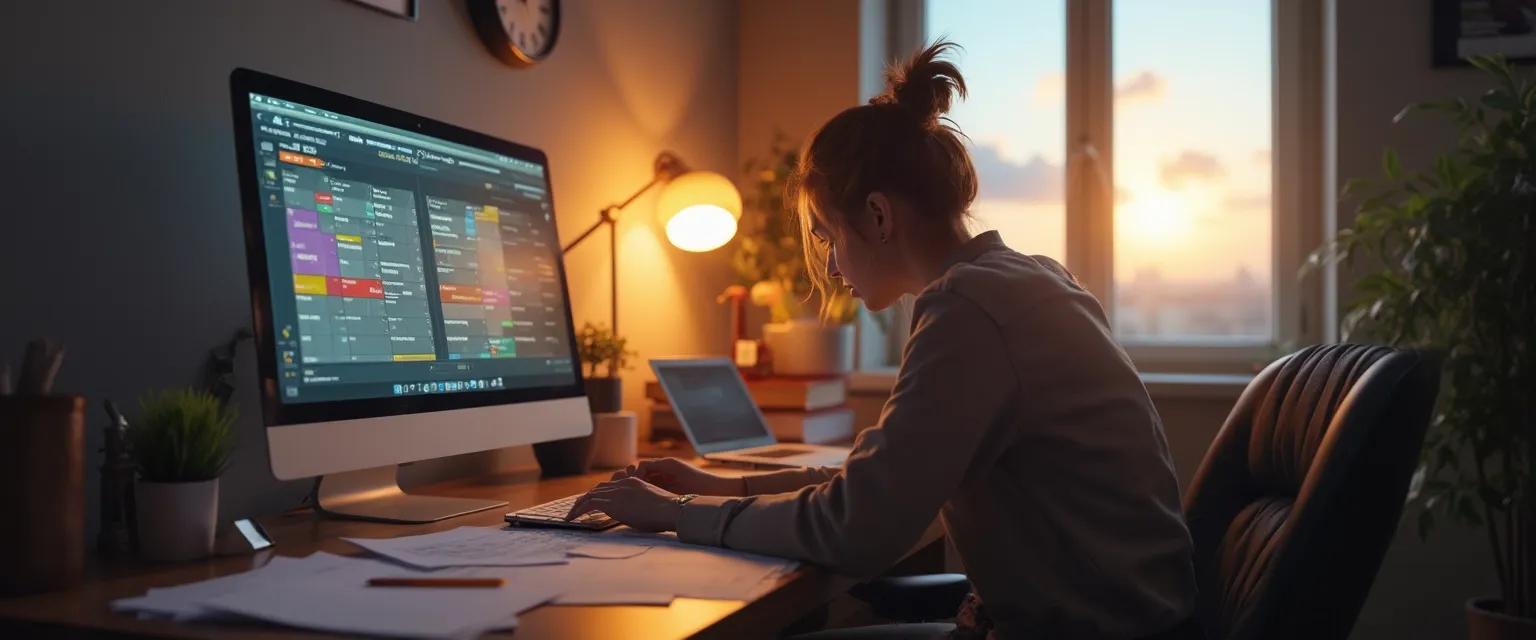Defeating Deadline Dread: Creative Professionals' Guide to Overcoming Procrastination
The blank page stares back at you. The deadline looms. Your creative mind—usually bubbling with brilliant ideas—now feels like a barren wasteland. Sound familiar? Procrastination in creative careers isn't just an inconvenience; it's a unique challenge that can undermine your creative potential and professional success. Unlike in more structured industries, creative professionals face distinct obstacles when battling the procrastination monster.
Creative work demands both technical skill and emotional vulnerability, making the stakes feel incredibly high. This combination creates the perfect storm for procrastination in creative careers, where perfectionism meets fear of judgment. When your identity is intertwined with your creative output, each project becomes not just a task but a reflection of your worth. No wonder task avoidance feels safer than risking creative disappointment.
The standard productivity advice—just break it down into smaller tasks!—often falls flat for creative professionals. The nature of creative work requires both structured discipline and unpredictable inspiration, a contradiction that makes conventional time management techniques insufficient for addressing procrastination in creative careers effectively.
Understanding Procrastination in Creative Careers: Root Causes and Triggers
At the heart of procrastination in creative careers lies the perfectionism paradox. Creative professionals often hold themselves to impossibly high standards, creating a fear that what they produce won't match the brilliant vision in their minds. This perfectionism creates a painful cycle: the higher your standards, the more intimidating it becomes to start, leading to more procrastination.
Creative block isn't just a consequence of procrastination—it's often a trigger too. When you've experienced creative block before, the fear of facing it again can make avoidance seem like the safer choice. This creates a self-fulfilling prophecy where anxiety about creative performance actually impairs your ability to perform creatively.
Environmental factors play a crucial role in procrastination in creative careers as well. The modern creative professional faces unprecedented distractions—from social media notifications to the pressure of constantly comparing yourself to others' highlight reels. Each ping and scroll creates micro-interruptions that fragment creative focus.
Perhaps most insidious is the evaluation anxiety that plagues creative work. Unlike objective tasks with clear right or wrong outcomes, creative work is subjectively evaluated—often publicly. This exposure makes procrastination in creative careers a protective mechanism against potential criticism or rejection.
Practical Techniques to Overcome Procrastination in Creative Careers
The 5-minute starting technique works wonders for creative professionals because it bypasses the intimidation of beginning. Simply commit to working on your project for just five minutes—no pressure, no expectations. This tiny commitment often breaks the procrastination spell, allowing you to slip into creative flow naturally.
Environment optimization is another powerful strategy to combat procrastination in creative careers. Design your workspace to minimize distractions and maximize creative cues. This might mean creating a dedicated creative zone, using stress reduction techniques before sessions, or using ambient sounds that signal to your brain it's time to create.
Time-blocking specifically for creative professionals means working with—not against—your natural creative rhythms. Track when your creative energy peaks and schedule your most demanding creative tasks during these windows. Reserve administrative tasks for when your creative energy naturally ebbs.
Transform intimidating creative projects into non-threatening micro-tasks by focusing on process rather than outcome. Instead of "write amazing chapter," try "write 300 words about the character's background"—specific, achievable, and focused on action rather than quality judgment.
Building Sustainable Anti-Procrastination Habits for Creative Success
Establishing creative routines eliminates the decision fatigue that often triggers procrastination in creative careers. When creative work becomes a non-negotiable part of your day—like brushing your teeth—you bypass the should-I-or-shouldn't-I debate that drains willpower.
Accountability systems work wonders for creative professionals when they're adapted to creative work's unique nature. Find an accountability partner who understands creative processes, or join communities where showing up with works-in-progress is celebrated rather than judged.
The most transformative shift comes from reframing deadlines as creative allies rather than enemies. Deadlines provide the productive pressure that many creative minds need to overcome procrastination in creative careers. They create boundaries that actually enhance rather than restrict creative expression.
Ready to defeat procrastination in creative careers once and for all? Start by implementing just one technique from this guide today. Remember that overcoming creative procrastination isn't about perfect implementation—it's about progress over perfectionism, one creative session at a time.




